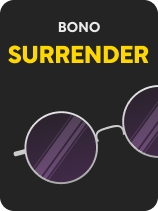

This article is an excerpt from the Shortform book guide to "Surrender" by Bono. Shortform has the world's best summaries and analyses of books you should be reading.
Like this article? Sign up for a free trial here.
What background stories are discussed in Surrender by Bono? How does Bono describe his lived experiences?
In Surrender, we learn about Bono’s Irish upbringing, how the death of his mother shaped his personal life, and how U2 came together as a band and rose to stardom, giving way to Bono’s celebrity activism. Learning about Bono’s history gives great insight into the nature of stardom and celebrity.
Read on to learn more from Bono’s memoir Surrender.
About Bono’s Memoir Surrender
In 1976, a teenage Irish schoolboy nicknamed “Bono” answered a classmate’s call for auditions to join a new band he was forming. Ten years later, that band—U2—was a global sensation whose musical career was still only just beginning. As U2’s lead singer, Bono leveraged his international fame as a rock star to become a voice for activist groups fighting poverty, hunger, and the AIDS epidemic. At the same time, he became a family man while pushing U2 to be creative and explore new styles of music. In Surrender by Bono, we see insights into the forming of U2 and Bono’s personal and professional life.
Bono’s memoir, Surrender, published in 2022, tells the story of his life, from his childhood in Dublin, Ireland, to the formation and success of U2, to his philanthropic efforts and the band’s constant work to reach and connect with their audiences worldwide. Along the way, he discusses his thoughts on music, his Christian faith, and how the troubles of his childhood affected who he’d become.
In this article, we’ll trace Bono’s life from the early death of his mother to the founding of U2, through their rise to stardom and periods of self-reinvention to Bono’s career as a political activist. Interspersed will be sections on Bono’s ideas regarding the power of music, the meaning of family, and the nature of his faith.
An Irish Adolescence
Paul “Bono” Hewson was born in Dublin, Ireland, on May 10, 1960. Though he was interested in music from a young age, his direction in life was also defined by family trauma and his growing Christian faith. Bono recalls how his childhood was shaped by the death of his mother, his introduction to evangelical Christianity, and the adolescent friendships that would launch him into adulthood.
Bono writes that his first exposure to music was through his father, who sang tenor and was a huge opera fan, though neither of his parents showed much interest in Bono’s early musical leanings. Had their lives gone differently, that might have changed, but sadly, Bono’s mother died when he was only 11. After her passing, Bono’s family hid their feelings of grief behind anger and silence. Bono became a classic latchkey child—taking care of himself, eating leftovers and canned food, and finding more emotional connection with his neighborhood friends than he ever did at home. It was one of those friends who gave Bono the nickname that would stick with him for life, rechristening him after the local “Bonavox” hearing aid store.
Perhaps the most important person to come into Bono’s life in this time was Alison “Ali” Stewart, whom he would later marry. They first met at school in 1973, when Bono was 13 years old and still emotionally closed off following his mother’s death. He and Ali began dating three years later while they were both involved in a nondenominational Christian organization called Shalom. Bono says that both then and now, his and Ali’s shared religious faith is a cornerstone of their relationship, though he also muses that he probably transferred his suppressed feelings of love for his lost mother to his new relationship.
U2’s Early Days
U2 first appeared on the music scene during the late ’70s heyday of punk rock, hard on the heels of bands like the Sex Pistols and the Ramones. Bono remembers feeling particularly energized by the raw simplicity of the Ramones’ music—in fact, U2 won their first TV gig by performing a Ramones song as their audition. However, Bono felt they were a stronger band whenever they played songs they’d written themselves. They did so in rehearsals, first in their school’s music room and later in a shed at the cemetery where Bono’s mother was buried.
In 1979, Bono and Ali traveled to London to give copies of U2’s first demo tape to record companies and music journalists. They did this mostly by pretending to have appointments just to get their foot in the music industry’s door, and their work was rewarded with positive write-ups in several music magazines. U2 followed up with a tour of London clubs, which met with mixed results—Bono writes that music critics seemed to enjoy the band’s music, but record company scouts always caught their worst shows. In the end, U2 returned to Ireland without the record contract they’d hoped for.
At the start of 1980, Bono felt like a failure, and the other band members questioned whether they should keep going or find “real jobs” instead. However, the band didn’t give up. On the strength of their positive reviews for shows in London, they went on tour in Ireland with their last show—offered for free—at the National Stadium in Dublin. Bono recalls that he and the band gave their all during that final performance. As luck would have it, a representative from Island Records was there, and he offered U2 a record deal on the spot—a contract that would lead to their first album, Boy, as well as their first music video, filmed for the song “I Will Follow.”
The Art of Music
Bono struggled with self-doubt throughout his musical career. On U2’s first record, he was anxious about the lyrics, which he felt were all less than what they could have been. His anxieties emerged during U2’s early shows—did he really fit in with the angry, rebellious British music scene of the time? After every concert, the band held a meeting to discuss what went right and wrong. In his memoir, Bono chides himself for berating his bandmates, though they often did the same to him regarding his on-stage antics. Bono admits to being an overly showy performer, partly to draw attention to himself and partly to hide behind a mask.
Rock Stardom
For good or ill, the side of the music business that the public is most aware of is the fame and recognition that comes with success. For Bono, the first decade of U2’s rock stardom—a time he equates to U2’s “teenage years” as a band—opened his eyes to a much wider world. He describes the joys of connecting with an audience during a live performance, the privilege of seeing the world from a rock star’s perspective, and how this experience culminated in the recording of U2’s breakout album, The Joshua Tree.
U2 embarked on their first European tour, and Bono describes how every show was a communal experience in which the audience played as big a role as the band. U2 was catching the energy of the punk rock movement, but where punk was cynical at heart, U2’s early music was a celebration of innocence. Bono says that in the magic of a great concert, he wouldn’t just lose himself in the music; he’d enable the audience to do so as well. It was more than just playing well on stage—when the band could truly connect with the crowd and spark the current of excitement running through them, everyone in the room would have a heightened experience almost like a shared state of flow.
Fatherhood and Family
Bono and Ali married in 1982, and as U2’s popularity grew, Ali and the band became Bono’s real family. Ali helped Bono realize that due to the trauma of losing his mother, a part of him hadn’t grown out of childhood. When Bono looks back at the anger he’d directed at his father during his teenage years, he concludes that the irrational child deep inside him blamed his father for his mother’s death. Though he’d transferred his love for his mother onto Ali, he’d still never processed his feelings toward his father.
Though Bono was deeply in love with Ali and cherished their marriage, he was unsure that he could be a good father. Since Bono’s father had been so distant after his mother’s death, Bono never learned what a caring, loving father should act like. Once Ali became pregnant, Bono remembers feeling happy, but frightened—what if he couldn’t cut it as a dad, and what if their child was as angry and awful as he’d been toward his father growing up? He feared that parenthood wouldn’t be compatible with his rock-and-roll lifestyle, in which he’d be absent for months at a time touring and recording with the band.
Despite Bono’s fears, he and Ali became parents, with two daughters born in ’89 and ’91, followed by sons in 1999 and 2001. They didn’t want their kids to grow up with the privilege and stigma of being a famous person’s children, so they chose to raise their family in Dublin, where Bono says that fame isn’t some kind of holy grail and that everyday people are valued just as much, if not moreso, than celebrities. After getting over his initial misgivings, Bono learned the value of parenthood. According to him, becoming a parent made him grow up while reminding him of the innocence of childhood—all of which fed his creativity as an artist.
New Directions
Bono writes that making the album Achtung, Baby was a particularly difficult time for the band. To record it, they arrived in Berlin exactly one year after the Berlin Wall came down. They had nothing written except some vague ideas and a wish to shed the ponderous seriousness that had come to define them and their music. Bono wanted to experiment with new musical arrangements and technological effects, but the process of improvising an album turned out to be much harder than expected. Bono takes responsibility for straining his relationship with the band, but the end product was an album they’re all proud of.
Though Achtung, Baby became a touchstone of the ’90s, the tour that went with it was a reaction against the garage-band aesthetic of the grunge movement. Though Bono enjoyed and appreciated grunge, its drab and serious undertones weren’t what U2 needed at the time. Dubbed “Zoo TV,” the Achtung, Baby tour featured a giant television with real-time channel surfing, and Bono adopted what he considers his most clownish stage persona ever. As part of his act, during every concert, Bono would crank-call the White House and ask to speak to President George H.W. Bush.
Bono’s Activism
One of Bono’s core beliefs is that problems such as poverty and hunger represent a failure of justice, not a lack of charity. The primary injustice he addressed in the ’90s as a spokesman for the Jubilee 2000 campaign was the vast amount of debt left over from the Cold War that the world’s poorest nations owed to the richest. Bono argues that having to pay off that old debt prevented whole countries from investing in themselves. The point of the Jubilee 2000 project was to get the lender nations, including the US, to cancel poorer countries’ debt altogether, freeing their resources for education, health, and infrastructure. The Jubilee 2000 campaign was successful, and its core group of activists looked for their next project.
The “White Savior” Problem
In retrospect, Bono writes that the victories for debt and AIDS relief were won by people even more involved than he was and that perhaps he wasn’t as essential to the movement as his ego would have him believe. Also, he acknowledges that when celebrities get involved in social problems, people assume their activism is self-serving and performative. Because of that, Bono often worries about how his activism affected his bandmates in U2—was he damaging their brand by speaking out on topics that concerned him? Was he inadvertently making U2 uncool?
The broader issue with Western activism that Bono became aware of over time is that often people from wealthy countries try to solve the world’s problems without including those who are struggling in the discussion. Bono argues that there’s also an unfortunate trend to use African faces as a stand-in for poverty and suffering in media without also highlighting the artistic creativity and entrepreneurial innovation that Africa has in spades. The racism embedded in these practices has produced a backlash against Western aid, so current and future activist efforts must consciously work to avoid these pitfalls by involving the governments and people receiving aid in every step of the activism process.
Expressions of Faith
Bono’s guiding star through all the issues in his life—his activism, music, and his role as a father—is the Christian faith he’s nourished since childhood. Bono’s spiritual life isn’t limited to any one branch of Christianity but instead draws from his life experiences and the people he’s connected with over the years. Throughout his memoir, Bono discusses his faith in terms of his journey through doubt, compassion for those in need, and ceding control of his life to God.
Bono explains that doubt is an essential part of his faith. He’s annoyed by overly showy religious figures and leaders who place restrictions on anyone who joins their congregations. For him, religious certainty is antithetical to faith. He sees God as something that can only be seen through symbols, music, and art. For this reason, he doesn’t write overtly Christian lyrics, instead choosing to imbue his songs with messages about searching for truth, rather than claims of having achieved it.
Exercise: Reflect on Bono’s Music, Life, and Activism
Like many famous musicians, Bono rose from obscurity to stardom while being shaped by his culture and the times he grew up in. Unlike most of his rock music contemporaries, Bono professes his Christian faith, which he uses to shape and inform U2’s music, as well as his personal activism. Reflect on how the context of Bono’s life shapes your impression of him as an artist, a celebrity, and an advocate for social justice.
- Beyond this article, how familiar are you with U2’s music and its religious undertones? Do you feel those messages are appropriate for mainstream entertainment? Why or why not?
- Comparing Bono to other famous musicians, do you believe that he’s more of an egotist, or is he more humble than his peers? How well do you feel he’s handled being famous compared to other rock stars, and why?
- Bono used his fame as a musician to speak on behalf of various causes, particularly the need for aid in Africa and elsewhere in the developing world. Do you believe it’s helpful or counterproductive for musicians to leverage their fame for social causes, and why do you feel that way?

———End of Preview———
Like what you just read? Read the rest of the world's best book summary and analysis of Bono's "Surrender" at Shortform.
Here's what you'll find in our full Surrender summary:
- The memoir of Irish rockstar Bono, and the band U2
- How Bono balanced fame with fatherhood, marriage, and religion
- How Bono used his fame to become a voice for activist groups







Beyond this article, i am extremely familiar with U2’s music and its religious undertones. I have been able to see them 50+ times since the 80’s. I definitely feel that the religious messages are appropriate for mainstream entertainment as they express peace and love for all, which is something we can all have more of.
When Bono is on-stage, he’s more of an egotist, than his peers but when he is off-stage he is more humble than his peers?ñ. He’s handled being famous extremely well compared to other rock stars. He is still married and spends tons of time with his family, never forgetting his roots.
I really respect him for using his fame for social causes; wish more superstars did so, it could really make a difference throughout the world.